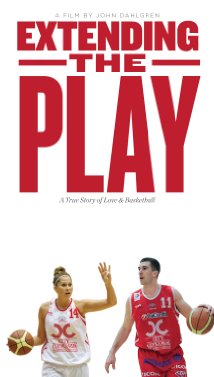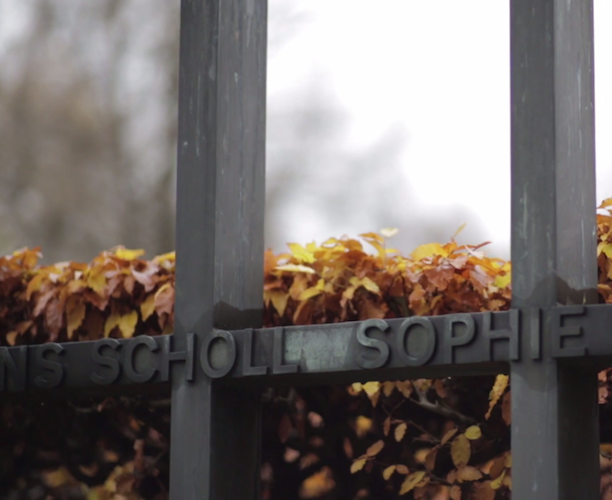Fuse Film Review: The Maine International Film Festival, Bar Harbor Edition
Two new documentaries: one a love story about two athletes, the other an attempt to chronicle a small resistance movement among German students against the Nazis.
By Paul Dervis
The Maine International Film Festival has, for the past six years, been showcasing its features in a second venue at the end of the summer. A four day festival (September 17 through 20) was held at the two screen Reel Pizza Cinerama in picturesque Bar Harbor and it was a wonderful way to cap the season. Besides screening some major movies, the MIFF also showed several films with local connections.
Extending the Play, a joint USA/Luxembourg venture, is a documentary that follows two American basketball players, one male and one female, who take their talents to Europe after the end of their college careers. Kasey Ulin, from a tiny school in the Upper Northwest, had a distinctive career, leading the nation in a couple of categories. But he was too small and played for a school that received scant national attention, so the NBA was not in his future. He was given the chance to play in Germany and he jumped at the offer. For a couple of years he was again ‘big man on campus’ in a foreign land.
Bracey Barker was the best woman’s basketball player ever to come out of high school in Bar Harbor. She was coached by her father and dominated the competition. She too was far off the beaten track on this tiny island, but she attracted enough attention to play college ball for the University of Maine’s Black Bears where she was ‘all everything.” She too was offered a contract to play in Germany, where she became a star.
And where she met Kasey.
They started dating and it would be great to say the rest was history….but wait one minute. They were in love alright. Just one thing. Kasey was caught in possession of cocaine. He had 24 hours to pack up his stuff and get out of the country. He went to live with his father on Port Angeles, Washington, working in construction. Bracy had only been going out with him for a couple of months. She was still in Germany. At first she wasn’t even sure she should keep seeing him.
She did. After a season, she left basketball and moved in with him. They were busily rebuilding their lives when a team in Luxembourg came calling with an opportunity to play. They would go if it were a package deal. The deal was done. They married and returned for three more years.
It sounds like a sports story, but it really isn’t. It’s about kids. Kids that are quite young but have a world of responsibility weighing on them. It’s a simple love story. The two are sweet, sincere, and compelling. It is easy to find one pulling for them.
Bracey and Kasey are easy to like, and so is this film.
A second locally connected documentary, The Search for the White Rose, tackles a potentially fascinating subject: a small resistance movement against the Nazis at the University of Munich in 1942. Organized by five students and led by a professor, the courageous group believed that the Nazis maintained control over the German people principally through fear. They wanted to awaken their peers from this self-induced slumber through the use of leaflets accusing the Nazi Party of atrocities. They would be dumped on their fellow students in the main hall of the school as class was getting out. The group planned to unload the material, then scatter. But a janitor caught them as they were preparing for the protest. They were tried for treason by the Gestapo, found guilty, and were executed.
The film opens up with file footage of Nazi Germany and quickly goes to interviews with several contemporary students at the University who are studying the movement, which was called the White Rose. We also get to hear from academics in Europe (significantly from Professor Wolfgang Huber, the son of Kurt Huber, the teacher who led the White Rose group) and here, including the professor/advisor to the filmmaker, Peter Logue.
And there rests the problem with this well-intentioned film. There’s much too much Logue, who narrates the documentary. The rookie director is on screen a good third of the time. An inspiring story is lost amid the mountains of “me, me, me.”
Paul Dervis has been teaching drama in Canada at Algonquin College as well as the theatre conservatory Ottawa School of Speech & Drama for the past 15 years. Previously he ran theatre companies in Boston, New York, and Montreal. He has directed over 150 stage productions, receiving two dozen awards for hs work. Paul has also directed six films, the most recent being 2011′s The Righteous Tithe.
Tagged: basketball, documentary, Extending the Play, Nazi, Paul Dervis, Peter Logue, Reel Pizza Cinerama, The Maine International Film Festival


